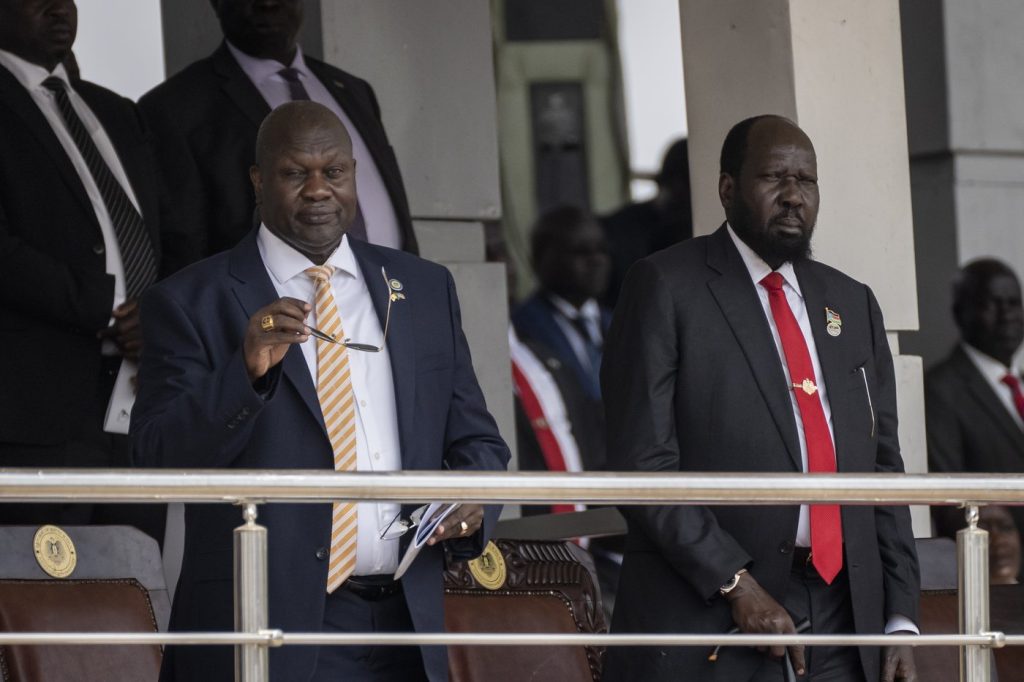NAIROBI, Kenya (AP) - The U.S. State Department issued an urgent directive on Sunday, mandating the departure of nonemergency government personnel from the capital of South Sudan, Juba. This order comes amid escalating tensions attributed to ongoing fighting in the northern regions of the country.
The travel advisory stressed that violence is prevalent and that "weapons are readily available to the population," highlighting the deteriorating security situation in South Sudan. Clashes erupted on Tuesday between an armed group and the national army, resulting in the arrests of two government ministers and a deputy army chief aligned with former rebel leader, now Vice President Riek Machar.
In a dramatic turn of events, Machar's residence was reportedly surrounded by government troops, as his supporters voiced that the arrests posed a significant threat to the fragile peace agreement that had been established. South Sudan has a tumultuous history; it was engulfed in a civil war from 2013 to 2018, during which over 400,000 lives were lost. A peace agreement was signed in 2018 by President Salva Kiir and Machar, but the implementation process remains ongoing and fraught with challenges.
The situation worsened on Friday when an attack took place on a United Nations helicopter that was engaged in an evacuation mission in northern South Sudan. This incident has further complicated the security landscape and has been classified as a potential war crime by the U.N. human rights body. On Saturday, the U.N. Commission on Human Rights in South Sudan voiced concerns that the recent violence in the north, combined with rising tensions in Juba, could undermine the peace agreement that has taken years to negotiate.
Yasmin Sooka, Chairperson of the U.N. Commission on Human Rights in South Sudan, articulated serious concerns regarding the ongoing violence, calling it "an alarming regression that could erase years of hard-won progress." Sooka emphasized the urgent need for leaders to refocus their efforts on the peace process, uphold the human rights of South Sudanese citizens, and ensure a smooth transition to democracy.
The current scenario in South Sudan underscores the volatility of the situation as the nation grapples with the consequences of conflict and the struggle for peace. The international community watches closely as tensions rise, hopeful for a resolution that could bring stability to this war-torn nation.










